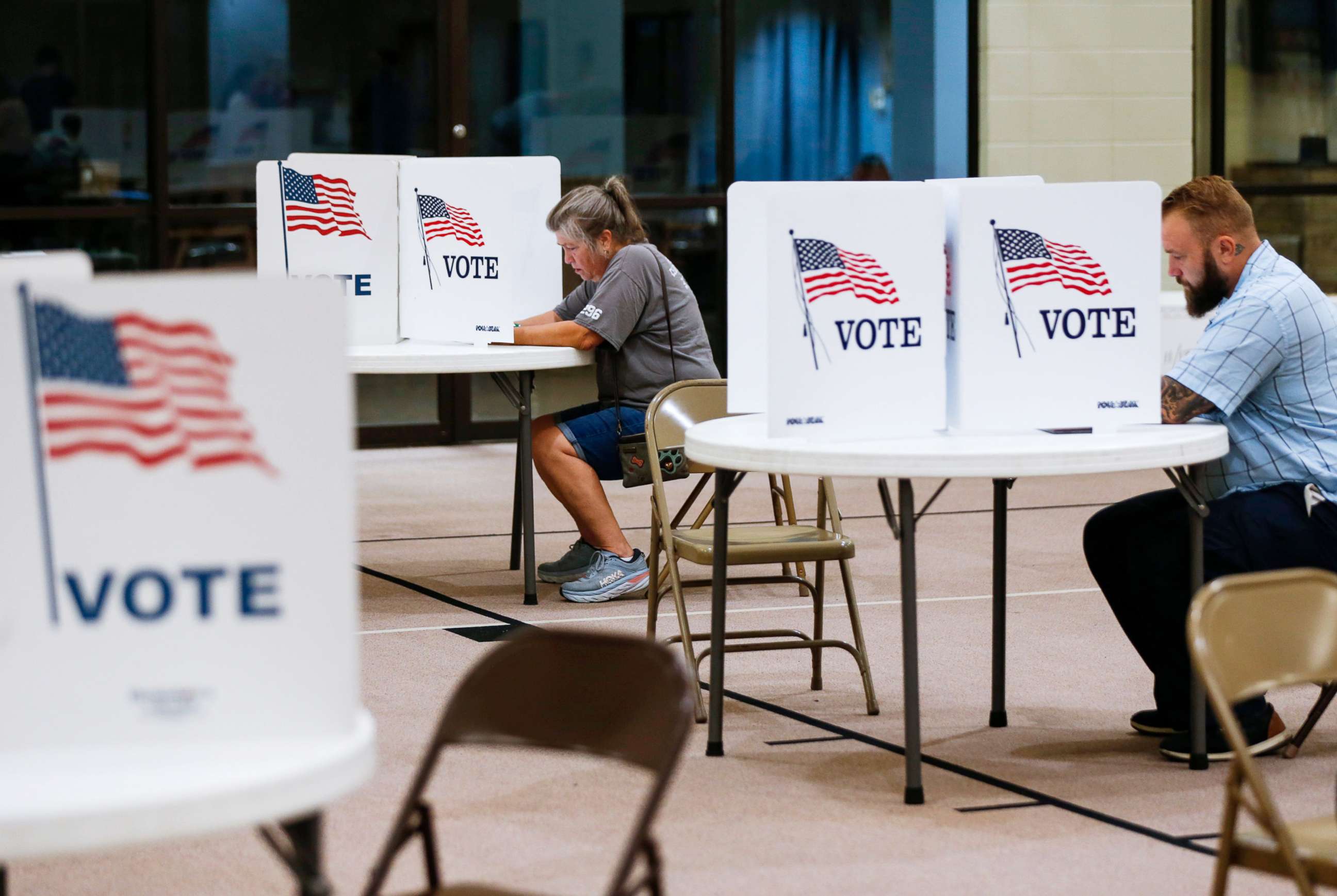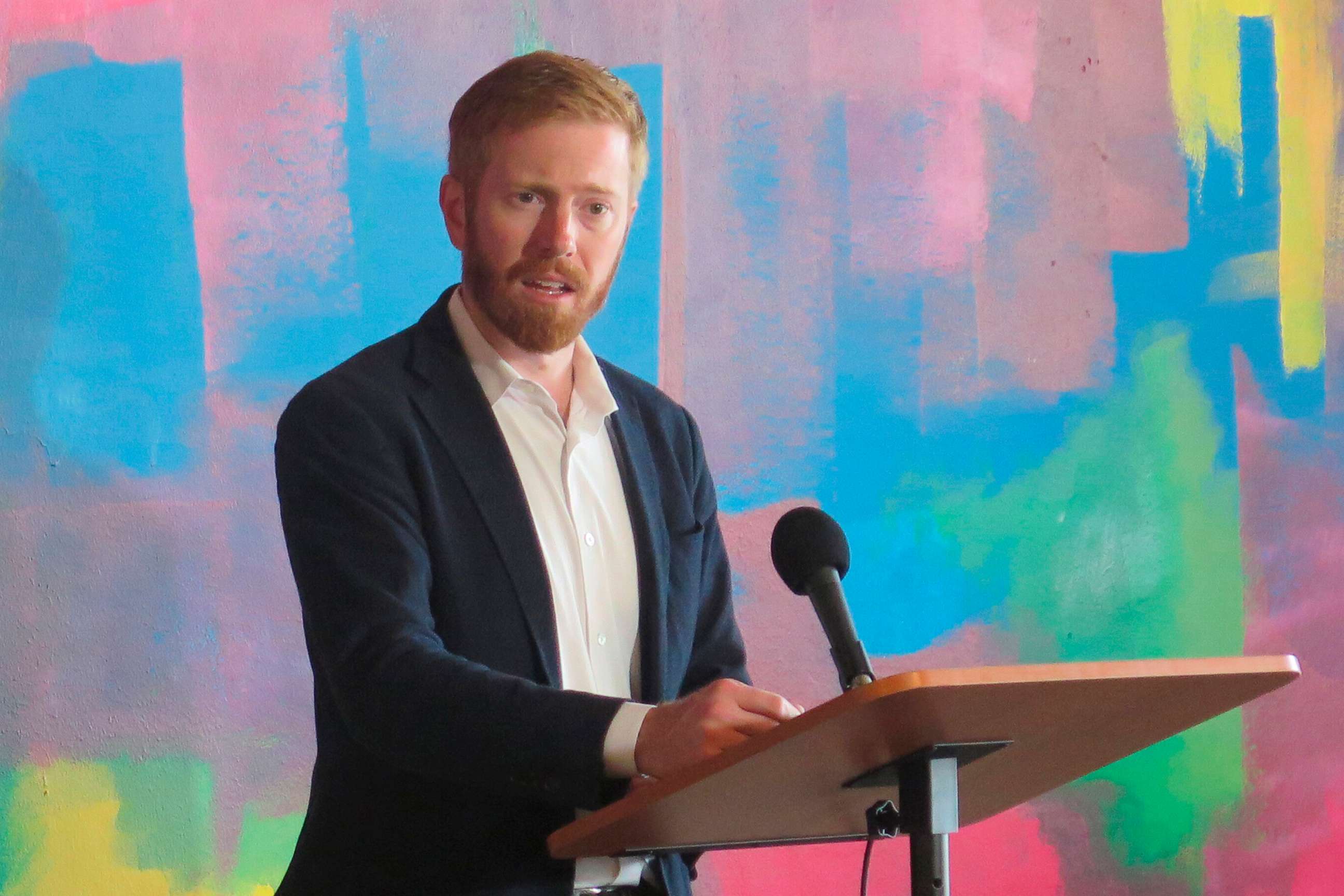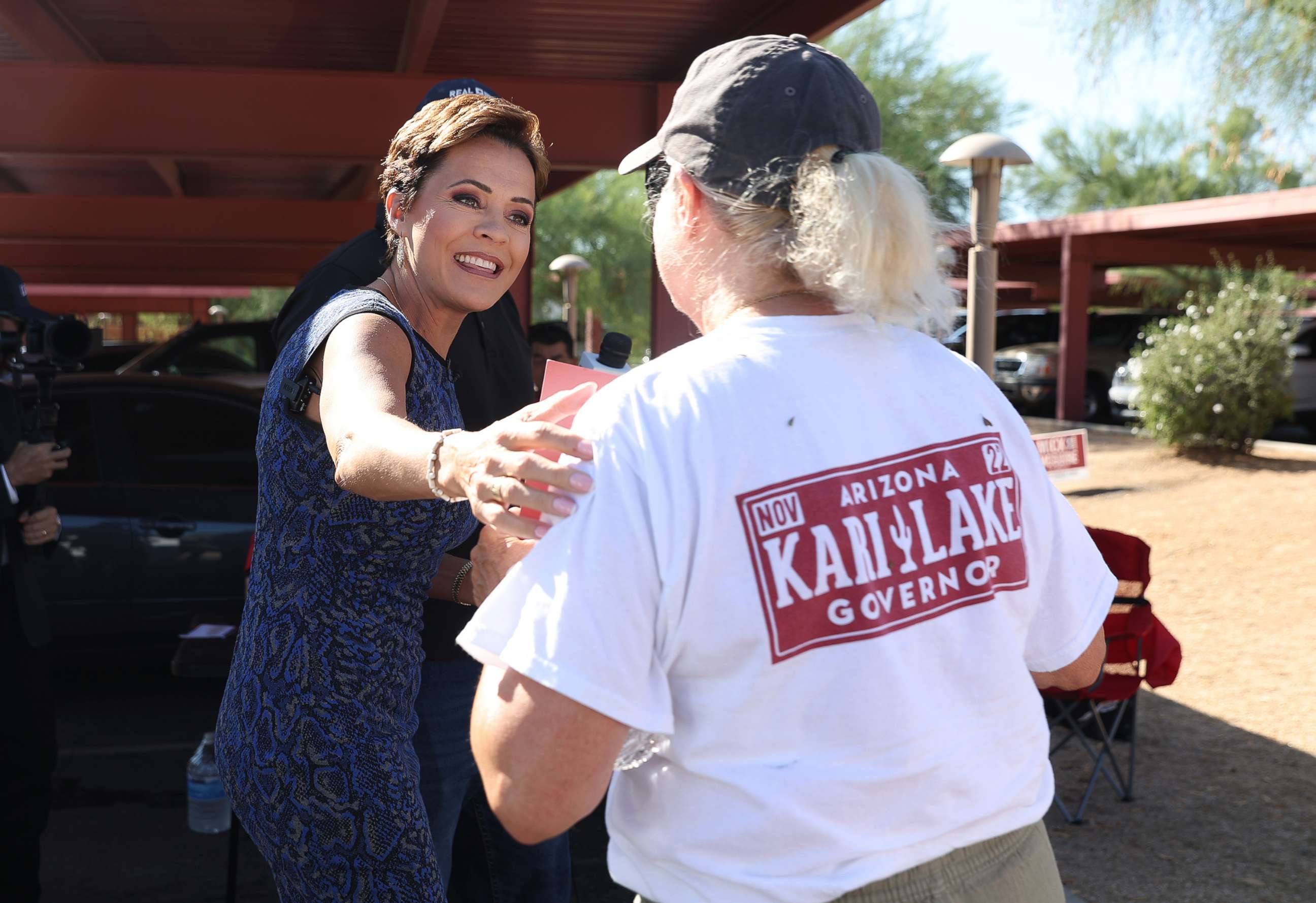Key takeaways from Tuesday's primaries: Big night for abortion rights, election deniers
Kansas voters rejected an effort to allow tightened abortion restrictions.
Abortion rights activists on Wednesday were relishing a major victory after Kansas voters soundly rejected a proposed constitutional amendment to roll back abortion access in the first state-level test since the Supreme Court overturned Roe. v. Wade.
That win -- in a red state former President Donald Trump carried by double digit margins in 2020 -- is a clear warning shot for conservative candidates and state lawmakers alike who campaign on Roe's downfall: Put the fate of abortion in the voters' hands and suffer the political consequences.
Kansas voters choose to protect abortion access
Several factors may have motivated Kansas voters to defeat the amendment 59%-41%, but left-leaning strategists are likely to paraphrase Barack Obama famously observing, "elections have consequences."
Those sorts of consequences can be measured in turnout.
On Tuesday, an eye-popping number of voters took to the polls, in near presidential general election-levels. So far, about 900,000 Kansans sounded off -- compared to numbers in the 300,000 range in the 2016 and 2014 primaries. The turnout was stunning by any measure, for a primary night in the middle of summer vacation season.

Can Democrats repeat the results in other states?
Beyond the headline there's layered impact here, as those seeking an abortion in a handful of states bordering Kansas -- states that have implemented trigger law restrictions -- can legally travel across state lines for the procedure.
While it might be a stretch for Democrats to do too big a victory lap for the cause, never in this midterm cycle has the left had a flare so bright and powerful, especially as down-ballot Democrats inherit the baggage of a generally unpopular president in Joe Biden, staggered inflation numbers, and mounting concerns about inflation.
The White House is championing this win, with Biden releasing a statement that the vote "makes clear" that "the majority of Americans agree that women should have access to abortion."
But several questions remain, a chief one being whether this voter enthusiasm can be replicated in other deeply red states. And will Republican-controlled legislatures dare to push amendments for fear of the same sort of result?
A winning strategy forward for Democrats to preserve abortion rights remains unclear and will surely be tested in the upcoming August primaries.
Plus, the result in the rest of Tuesday night's primaries will likely give Democrats more headaches than produce high-fives.

A mixed night for impeachment backers, but a big night for election deniers
Elections in Michigan, Missouri, Arizona and Washington made way for big wins for "the big lie" and saw the end of the reelection road for Michigan Rep. Peter Meijer, one of the few Republicans who broke party ranks and voted to impeach Donald Trump. Meijer's loss is something of a grim prescription for the remaining anti-Trump Republicans -- Rep. Liz Cheney take note -- who have staked their reputations and job security on the anything-but-MAGA line.
Instead of Meijer, ultra-conservative election-denier John Gibbs advances to the general election. The embers of Democrats' stoking far-right flames burned in this race, too, with the party's congressional campaign arm pumping $500,000 in ads boosting Gibbs' profile in the hopes he would be easier for Democrats to beat in November.
Rep. Adam Kinzinger, another vocal anti-Trump Republican who decided to back out reelection, told CNN that "the DCCC (Democratic Congressional Campaign Committee) needs to be ashamed of themselves."
Tricky news in any event for Cheney, who faces her own set of hurdles in the Wyoming at-large primary on Aug.16. A quirk of the Wyoming election rules where Democrats and Independents can change party affiliations at the time of voting introduces a safeguard not accessible to someone like Meijer, however.

If the Republican primary cycle has taught anything, it's that there is legitimate appetite for election conspiracy among the GOP electorate – or at least, a willingness to support "big lie" candidates despite everything that's been revealed. FiveThirtyEight estimates at least 120 nominees deny the credibility of the election.
Arizona is something of the ground zero of election denial, where candidates at nearly every level champion a flavor of "election integrity." In the GOP primary for attorney general, former prosecutor Abe Hamadeh, with a blessing from Trump, will effort to make Arizona great again.
It's too early to call the results for the Republican gubernatorial primary, where former tv anchor Kari Lake has made a questioning of the election her mantra, turning interviews back on journalists to make her case.
Which sort of Democrat is left to fend off someone like Lake? In Arizona, it will be former secretary of state Katie Hobbs, who already is campaigning against "conspiracies of the past."
"We need leaders who will look to the future, not conspiracies of the past. Leaders who are doers, not whiners. Do you want a governor whose entire platform boils down to being a sore loser or a governor who will get the job done for Arizona?" Hobbs pitched in her victory speech Tuesday night.




